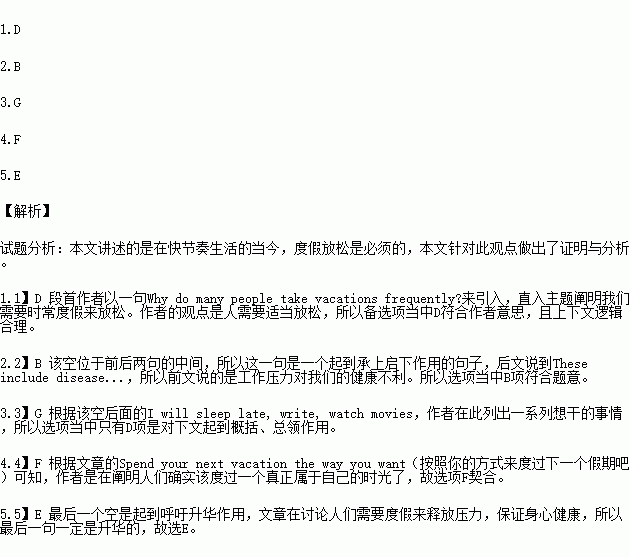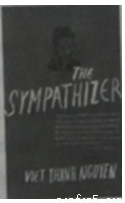题目内容
Why do many people take vacations frequently? We need to take time out from work to relax, and just be ourselves. 1. We should all be allowed to leave our jobs behind us—at least for a few weeks each year—and just have fun. This might be something as simple as reading a good book in front of a warm fireplace through to traveling to the most interesting places on our planet. Whatever we fancy doing is worth taking time out for.
As we know, workplace stress is on the rise. 2. These include disease, depression and even death. We all seem to be running from one place to the next, never finding out where we want to go in the first place. I intend to break that trend in the coming days. 3. I will sleep late, write, watch movies, drink the occasional glass of wine, and eat to my heart's content, ignoring calorie counting. My plan is to just enjoy the fleeting(飞逝的) moments of being alive. 4. Spend your next vacation the way you want; Do what will restore your mental health. You're very valuable to the people who are close to you, and to those who depend on it. Like it or not, we are all interdependent(互相依存的)in this great life of ours. There's no doubt that you are valuable. Just remember that the next time you look at a mirror and take a deep breath. Remind yourself that there will never be anyone like you ever on this earth again. 5. 1you have to do is just ask yourself what you want to do.
A. Draw up a detailed plan so that you can see more.
B. With it come many health problems.
C. When you finally get home you'll be greatly refreshed.
D. Life is not all about work, or at least it shouldn't be.
E. And only you know how to take a vacation in your way.
F. I challenge each one of you to do the same.
G. For my next holiday, I will do all the things that I love doing.
 天天向上一本好卷系列答案
天天向上一本好卷系列答案 小学生10分钟应用题系列答案
小学生10分钟应用题系列答案

